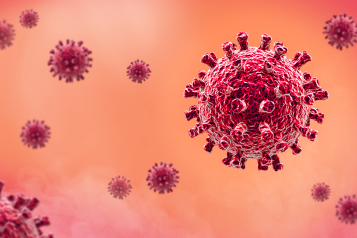What is Fibromyalgia?

Symptoms of fibromyalgia
As well as widespread pain, other symptoms of fibromyalgia include:
- increased sensitivity to pain
- muscle stiffness
- difficulty getting to sleep or staying asleep, which can make you feel very tired (fatigue)
- problems with mental processes (known as "fibro-fog"), such as difficulty concentrating or remembering things
- headaches
- irritable bowel syndrome (IBS), a digestive condition that causes stomach pain and bloating
- feelings of frustration, worry or low mood
The symptoms of fibromyalgia are changeable – for example, they can sometimes suddenly improve or get worse.
See a GP if you think you have fibromyalgia. Treatment can ease some of the symptoms, although they're unlikely to disappear completely.
How fibromyalgia is treated
Although there's currently no cure for fibromyalgia, there are treatments to help relieve some of the symptoms and make the condition easier to live with.
Treatment tends to be a combination of:
- lifestyle changes, such as exercise programmes and relaxation techniques
- talking therapies, such as cognitive behavioural therapy (CBT) and acceptance and commitment therapy (ACT)
- medicine, such as antidepressants
In particular, exercise has a number of important benefits for people with fibromyalgia, including helping to reduce pain.
What causes fibromyalgia?
The exact cause of fibromyalgia is unknown, but it's thought to be related to abnormal levels of certain chemicals in the brain and changes in the way the central nervous system (the brain, spinal cord and nerves) processes pain messages carried around the body.
It's also suggested that some people are more likely to develop fibromyalgia because of genes inherited from their parents.
In many cases, the condition appears to be triggered by things that are physical or emotional like an injury, an infection or stress.
Who's affected
Anyone can develop fibromyalgia, but it's more common in women than men.
The condition typically develops between the ages of 25 and 55, but people of any age can get it, including children and older people.
It's not clear exactly how many people are affected by fibromyalgia, although research has suggested it could be a relatively common condition.
Some estimates suggest nearly 1 in 20 people may be affected by fibromyalgia to some degree.
One of the main reasons it's not clear how many people are affected is because fibromyalgia can be a difficult condition to diagnose.
There's no specific test for the condition, and the symptoms can be similar to a number of other conditions.
Support groups
If you have fibromyalgia, support groups can provide an important network for talking to others living with the condition.
Fibromyalgia Action UK is a charity that offers information and support to people with fibromyalgia.
If you have any questions about fibromyalgia, call the charity's helpline on 0300 999 3333.
Fibromyalgia Action UK also has a number of regional co-ordinators who can put you in touch with a support group near you.
Another organisation you may find useful is UK Fibromyalgia.
Fibromyalgia has many symptoms that tend to vary from person to person. The main symptom is widespread pain.
There may be periods when your symptoms get better or worse, depending on factors such as:
- your stress levels
- changes in the weather
- how physically active you are
See a GP if you think you have fibromyalgia.
Treatment is available to ease some of the symptoms, although it's unlikely they'll ever disappear completely.
Widespread pain
If you have fibromyalgia, one of the main symptoms is likely to be widespread pain.
This may be felt throughout your body, but could be worse in particular areas, such as your back or neck.
The pain is likely to be continuous, although it may be better or more severe at different times.
The pain could feel like:
- an ache
- a burning sensation
- a sharp, stabbing pain
Extreme sensitivity
Fibromyalgia can make you extremely sensitive to pain all over your body, and you may find that even the slightest touch is painful.
If you hurt yourself, such as stubbing your toe, the pain may continue for much longer than it normally would.
You may hear the condition described in the following medical terms:
- hyperalgesia – when you're extremely sensitive to pain
- allodynia – when you feel pain from something that should not be painful at all, such as a very light touch
You may also be sensitive to things like smoke, certain foods and bright lights.
Being exposed to something you're sensitive to can cause your other fibromyalgia symptoms to flare up.
Stiffness
Fibromyalgia can make you feel stiff. The stiffness may be most severe when you have been in the same position for a long period of time – for example, when you first wake up in the morning.
Fatigue
Fibromyalgia can cause tiredness. This can range from feeling mildly tired to the exhaustion often felt during a flu-like illness.
Severe tiredness (fatigue) may come on suddenly and can drain you of all your energy. If this happens, you may feel too tired to do anything at all.
Poor sleep quality
Fibromyalgia can affect your sleep. You may often wake up tired, even when you have had plenty of sleep.
This is because the condition can sometimes prevent you sleeping deeply enough to refresh you properly.
You may hear this described as non-restorative sleep.
Cognitive problems ('fibro-fog')
Cognitive problems are issues related to mental processes, such as thinking and learning.
If you have fibromyalgia, you may have:
- trouble remembering and learning new things
- problems with attention and concentration
- slowed or confused speech
Headaches
If fibromyalgia has caused you to experience pain and stiffness in your neck and shoulders, you may also have frequent headaches.
These can vary from being mild headaches to severe migraines, and could also involve other symptoms, such as feeling sick.
Irritable bowel syndrome (IBS)
Some people with fibromyalgia also have irritable bowel syndrome (IBS).
IBS is a common digestive condition that causes pain and bloating in your stomach. It can also lead to constipation or diarrhoea.
Other symptoms
Other symptoms you may have if you have fibromyalgia include:
- dizziness and clumsiness
- feeling too hot or too cold – this is because you're not able to regulate your body temperature properly
- an overwhelming urge to move your legs (restless legs syndrome)
- tingling, numbness, prickling or burning sensations in your hands and feet (pins and needles, also known as paraesthesia)
- in women, unusually painful periods
- anxiety
Depression
In some cases, having fibromyalgia can lead to depression.
Depression can cause many symptoms, including:
- constantly feeling low
- feeling hopeless and helpless
- losing interest in the things you usually enjoy
If you think you may be depressed, it's important to get help from a GP or your fibromyalgia healthcare professional, if you have been seeing one.
It's not clear why some people develop fibromyalgia. The exact cause is unknown, but it's likely that a number of factors are involved.
Here are some of the main factors thought to contribute to the condition.
Abnormal pain messages
One of the main theories is that people with fibromyalgia have developed changes in the way the central nervous system processes the pain messages carried around the body.
This could be the result of changes to chemicals in the nervous system.
The central nervous system (brain, spinal cord and nerves) transmits information all over your body through a network of specialised cells.
Changes in the way this system works may explain why fibromyalgia results in constant feelings of, and extreme sensitivity to, pain.
Genetics
Research has suggested genetics may play a small part in the development of fibromyalgia, with some people perhaps more likely than others to develop the condition because of their genes.
If this is the case, genetics could explain why many people develop fibromyalgia after some sort of trigger.
Possible triggers
Fibromyalgia is often triggered by an event that causes physical stress or emotional (psychological) stress.
Possible triggers include:
- a serious injury, such as after a car accident
- an infection, such as Epstein-Barr virus or Lyme disease
- having a major operation
- significant emotional trauma, such as after serving in the armed forces during a war
Sometimes, fibromyalgia does not develop after any obvious trigger.
Associated conditions
There are several other conditions often associated with fibromyalgia.
Generally, these are rheumatic conditions (affecting the joints, muscles and bones), such as:
- osteoarthritis – when damage to the joints causes pain and stiffness
- rheumatoid arthritis – when the immune system mistakenly attacks healthy cells in the joints, causing pain and swelling
- ankylosing spondylitis – pain and swelling in parts of the spine
- temporomandibular disorder (TMD) – a condition that can cause pain in the jaw, cheeks, ears and temples
See a GP if you think you have fibromyalgia. Diagnosing fibromyalgia can be difficult as there's no specific test to diagnose the condition.
The symptoms of fibromyalgia can also vary from person to person and are similar to those of several other conditions.
The GP will ask you how your symptoms are affecting your daily life.
They may also examine you to check for visible signs of other conditions – for example, swollen joints may suggest arthritis, rather than fibromyalgia.
Tests to check for some of these conditions include urine and blood tests, although you may also have X-rays and other scans.
If you're found to have another condition, you could still have fibromyalgia as well.
Diagnosing other conditions
It's also possible to have other conditions alongside your fibromyalgia, such as:
If your symptoms suggest that you have another condition as well as fibromyalgia, you may need further tests to diagnose these.
Identifying all possible conditions will help guide your treatment.
Treatment for fibromyalgia aims to ease your symptoms and improve your quality of life.
Your GP can help you decide about the best treatment for you, depending on what you prefer and what’s available in your area.
No single treatment will work for all symptoms of fibromyalgia, and treatments that work for some people will not necessarily work for others.
You may need to try a variety of treatments to find a combination that suits you.
The 3 main treatments recommended for fibromyalgia are:
- exercise
- talking therapies
- medicines
Exercise
It’s important to be physically active if you have fibromyalgia. This can be difficult if you’re in pain, but regular exercise has been shown to help reduce pain and improve overall quality of life.
Your GP may offer you an exercise programme, depending on what’s available in your area. It may be a supervised exercise programme either on your own or in a group.
The type of exercise should be something you enjoy and can continue doing long-term. As well as your personal preferences, your lifestyle, health needs and physical ability will be taken into account when choosing the type of exercise.
See self-help for fibromyalgia for more information about exercise and relaxation techniques.
Talking therapies
There are 2 talking therapies that may be able to help reduce pain caused by fibromyalgia. They are:
- acceptance and commitment therapy (ACT) – where you learn to accept what is out of your control and commit to making changes that will improve your life
- cognitive behavioural therapy (CBT) – a talking therapy that can help you manage your problems by changing the way you think and behave
ACT has been shown to improve sleep quality, reduce pain and help deal with negative thoughts and feelings.
CBT can also help improve the quality of life for people living with long-term pain.
Medicine
Antidepressants are sometimes used to help relieve the pain of fibromyalgia. They can also help improve your sleep, emotional health and overall quality of life.
There are many different types of antidepressants. The ones that are often used to treat fibromyalgia are:
These medicines are usually only recommended for treating long-term pain in people aged 18 or over.
Your doctor should discuss the advantages and disadvantages of an antidepressant with you before they prescribe it.
There’s little or no evidence to show that other types of medicine help reduce long-term pain.
If you’re already taking other medicines, your doctor will review and discuss them with you before prescribing an antidepressant.
Acupuncture
Acupuncture can reduce pain and improve the quality of life in some people with long-term pain.
But its effects have only been shown to last up to 3 months, and any longer-term benefits it may have are unknown. It may also not be available in your area.
If you have fibromyalgia, there are several ways to change your lifestyle to help relieve your symptoms and make your condition easier to live with.
Your GP, or another healthcare professional treating you, can advise and support you in making these changes part of your everyday life.
Exercise
As extreme tiredness (fatigue) and pain are 2 of the main symptoms of fibromyalgia, you may find that you're not able to exercise as much as you would like.
But an exercise programme specially suited to your condition can help you manage your symptoms and improve your overall health.
Your GP or physiotherapist may be able to refer you to a health professional who specialises in helping people with fibromyalgia work out an exercise plan.
The plan may involve aerobic or strengthening exercises, or a combination of both.
Relaxation
If you have fibromyalgia, it's important to regularly take time to relax or practise relaxation techniques.
Stress can make your symptoms worse or cause them to flare up more often. It could also increase your chances of developing depression.
There are many relaxation aids available, including books, tapes and courses, although deep-breathing techniques or meditation may be just as effective.
Try to find time each day to do something that relaxes you. Taking time to relax before bed may also help you sleep better at night.
Talking therapies, such as counselling, can also be helpful in combating stress and learning to deal with it effectively.
Your GP may recommend you try this as part of your treatment.
Find out more about stress management
Better sleeping habits
Fibromyalgia can make it difficult to fall asleep or stay asleep (insomnia).
If you have problems sleeping, it may help to:
- get up at the same time every morning
- try to relax before going to bed
- try to create a bedtime routine, such as taking a bath and drinking a warm, milky drink every night
- avoid caffeine, nicotine and alcohol before going to bed
- avoid eating a heavy meal late at night
- make sure your bedroom is a comfortable temperature and is quiet and dark
- avoid checking the time throughout the night
Help and support
If you have fibromyalgia, you may find support groups helpful. Just talking to someone who knows what you're going through can make you feel better.
Organisations that support people with fibromyalgia may be able to offer advice.
You can use UK Fibromyalgia's support group section to find a list of fibromyalgia support groups in your area.
Fibromyalgia Action UK is another charity that has information and provides support for people with fibromyalgia and their families.
You can call their helpline on 0300 999 3333 (Monday to Friday, 10am to 4pm).
HealthUnlocked also has a fibromyalgia online community where you can talk to other people with the condition.
The information shared on this page has been supplied by NHS England
The information they have supplied was last reviewed on the 12 October 2022 and is due for a review on 12 October 2025.
The image used for this article has been supplied through Canva and has no direct link to the information


